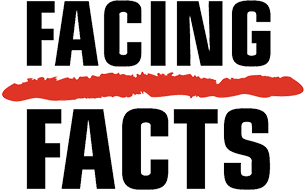Press Release
07/06/2024
Facing Facts Network Releases New Policy Brief on the DSA: What is the Digital Services Act and what does it mean for hate speech monitoring and responses?
Date: June 7, 2024
Brussels, Belgium – The Facing Facts Network Secretariat is pleased to announce the release of its latest policy brief titled, “What is the Digital Services Act and what does it mean for hate speech monitoring and responses?” This policy brief provides an analysis of the Digital Services Act (DSA), which entered into force in February 2024, and its significant implications for hate speech monitoring and responses across the European Union.
This briefing aims to reflect the perspective of Facing Facts Network members and organisations working on hate speech monitoring, based on survey results that were collected during January and February 2024. 15 organisations across 11 countries, including 12 civil society organisations (CSOs) and three public authorities participated in the survey. This policy brief aims to better understand their experiences and to offer contextualised analysis and recommendations.
The DSA represents a pivotal moment in EU leadership on online content regulation, aiming to create a safer digital space. The policy brief explores the challenges and opportunities that the DSA presents, particularly in the context of hate speech monitoring.
Key Findings and Recommendations:
Enhanced Justice and Safety: The DSA is expected to increase access to justice and support for victims of hate speech. Effective cooperation across the ‘hate speech response system’, including National Digital Services Coordinators (DSCs) and Trusted Flaggers will be particularly important.
Unified Methodology: There is a critical need for a unified methodology for hate speech monitoring, responses, and referrals across the EU. Article 35 of the DSA can support this approach by providing guidance over decision-making processes and Trusted Flagger accreditations.
Regulated Entities’ Responsibilities: The policy brief emphasises that regulated entities must fully address hate speech on their platforms and comply with Articles 9 and 10 of the DSA, which oblige them to cooperate with requests for information from national authorities and appoint a single point of contact. In this regard, the role of the European Centre for Algorithmic Transparency could be further clarified.
Role of Equality Bodies: Equality bodies could play a key role in supporting investigations and prosecutions of illegal hate speech, monitoring, and ensuring diverse representation among Trusted Flaggers, who are appointed by DSCs.
Engagement with Civil Society: The policy brief recommends that DSCs organise annual events with civil society and map their national regulatory context to strengthen existing mechanisms and relationships.
Challenges Identified:
Lack of Information: Despite high awareness of the DSA’s provisions, there is a significant lack of information on national-level implementation, particularly concerning the appointment and roles of DSCs. Respondents highlighted the need for DSCs to build strong relationships with civil society organisations and equality bodies.
Concerns Over Trusted Flaggers: Relying on incidents submitted by third parties is not a feasible strategy for effectively addressing hate speech. Sufficient funding needs to be secured for Trusted Flaggers to meet the DSA’s expectation, especially due to the requirement of independence from any provider of online platforms.
Hate speech decision-making: There is a need for clarity on the process of reporting. The DSA does not establish a substantive legal framework, by for example providing a definition of illegal hate speech applicable across all Member States. The term “illegal hate speech” relies for now on interpretation of Union law or Member States law.
About the Facing Facts Network:
The Facing Facts Network is an EU-funded network that encompasses a broad coalition of civil society organisations and public authorities working across communities and institutions to transform understandings of and responses to hate crime and hate speech in Europe.
For more information or to access the full policy brief, please visit this link.


 Facing Facts is co-funded by the Citizens, Equality, Rights and Values Programme
Facing Facts is co-funded by the Citizens, Equality, Rights and Values Programme